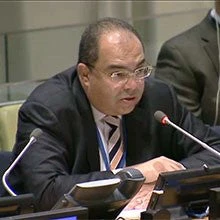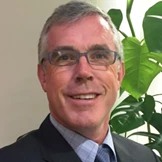 Children in a classroom in Nicaragua. Photo: © Jorge Antonio Bastino/World Bank
Children in a classroom in Nicaragua. Photo: © Jorge Antonio Bastino/World Bank
In September 2015, the international community adopted the 2030 Agenda for Sustainable Development and the Sustainable Development Goals (SDGs), as 193 heads of state signed on to attain the 17 goals and their 169 targets, to be monitored by more than 230 indicators. Just 10 years now remain in which to implement the 2030 Agenda and achieve the ambitious global goals in a manner that saves the planet, maintains economic sustainability, and leaves no one behind in the process.
In the run-up to the SDG-related summits in 2015, the World Bank Group prepared various strategic documents for discussion with its Development Committee. Papers prepared include the Billions to Trillions document, prepared in collaboration with other multilateral development banks, the European Investment Bank, and the International Monetary Fund. It discussed the role of the Bank Group and other international financial institutions in financing the 2030 Agenda. Another paper outlined the implementation support from the Bank Group for the 2030 Agenda and a note on the importance of data for development.
Billions to Trillions led to the creation the Bank Group’s maximizing finance for development initiative, which adopted the cascade approach in order to mobilize private resources and create markets for private participation. In 2019, the International Finance Corporation (IFC) and the International Bank for Reconstruction and Development (IBRD) attained capital increases and development partners agreed to significant increases in resources as part of the 18th and 19th replenishments of the International Development Association (IDA). These developments allowed the Bank Group to increase its annual commitment to almost $100 billion, up from about $60 billion a few years ago.
In 2012 the Bank Group adopted reforms that helped client countries accelerate inclusive and sustainable growth, invest in human capital, and strengthen resilience in order to attain the institution’s twin corporate goals and help achieve various SDGs. Incorporating the Bank Group twin goals of ending extreme poverty and promoting shared prosperity into SDG 1 and SDG 10, including various SDGs in the Bank Group scorecard, combined with a Global Practice structure (which to a large extent mimics the SDGs) allowed the World Bank Group to continue down the path it embarked upon with these reforms.
The Bank Group also produced several tools to help countries prioritize and sequence the SDGs. On the data side, the World Bank data group revamped the interactive Atlas of Sustainable Development Goals. With the support of IDA and technical assistance projects, the Bank is also helping low- and middle-income countries improve their data systems.
Despite these efforts—and the strong commitment of the international community—progress has been inadequate. The SDG Summit of 2019, held under the auspices of the UN General Assembly, concluded that most of the interim targets for 2020 will likely not be met and that the world is not on track to achieve many targets by 2030. The picture is particularly bleak in Africa. In its Africa 2030 report, the SDG Center for Africa concludes that Africa is off track for meeting 14 of the 17 SDGs. It can provide data on only 40 percent of the indicators—and many of those data are outdated or cannot be compared across countries. Africa also faces an annual financing gap estimated at $500 million– $1.2 trillion.
Many of the initiatives the Bank Group, other multilateral development banks, the United Nations, and other international bodies are promoting—and various countries are pursuing—seem to be the right ones. Many of them take into account lessons learned from the Millennium Development Goal (MDG) era, including the need to understand the interrelatedness of the goals, fund effective programs, mobilize and involve communities, and bridge the humanitarian–development nexus.
So why has progress been so slow? Did experts underestimate the challenge? Were initiatives not brought to scale? Is the lack of system-wide institutional coherence in the global system, despite the good efforts by the UN to reform its development arm, the problem? Or is it the fact that global developments—a weak economy and a trade war—were not supportive of the efforts needed to implement the 2030 Agenda?
Whatever the cause, action is needed and the Bank Group is well positioned to increase the impact of three thematic areas (finance, implementation, and data). Specific actions depend not only on these thematic areas, but also on the SDG(s) in question and country conditions. But three specific lessons could help jumpstart SDG attainment.
- Trillions of dollars need to be leveraged from the private financial sector to fund SDG-related programs and projects. According to the Organisation for Economic Co-operation and Development (OECD), in 2017 development finance interventions raised a meager $38.2 billion from the private sector. To increase private sector funding, the ex ante project-by-project cascade approach needs to be complemented by a mechanism that permits the private financial sector to buy into the Bank Group portfolio before preparation and implementation of projects and/or after projects have been fully disbursed. Efforts could build on programs like IFC’s Managed Co-Lending Portfolio Program, which has attracted resources from institutional investors.
The Bank Group is well positioned to serve as an intermediary between developing countries and the private financial sector. To do a better job of doing so, it needs to make internal changes that move away from rewarding staff for Bank Group-financed projects to a system that rewards preparation and co-financing of projects. Staff also need to be rewarded for enhancing the capacity of client countries to prepare and implement bankable projects irrespective if the Bank Group provides financing. The Bank Group Board could make a start by requiring that all project documents include an explicit discussion of the options pursued to engage the private financial sector and asking management to evaluate the requirements to put a portfolio approach in place to roll over Bank Group loans and credits much more rapidly.
- The Bank Group’s knowledge base and implementation experience need to be leveraged to engage partners to work collectively on solving SDG-related bottlenecks at country level. The Bank Group produces cutting-edge knowledge products about development at the global, regional, country, and local levels and helps build capacities to manage interrelated development processes. These knowledge products need to be more effectively managed, in order to engage client countries and UN partners to implement the 2030 Agenda and convince them to follow the policy advice that emerges from Bank Group knowledge products.
During the last thousand days of the MDG period, former Bank Group President Jim Kim and UN Secretary-General Ban KI-moon forged a collaboration between the Bank Group and the UN system to analyze bottlenecks to MDG progress at country level. The bottlenecks and proposed solutions were presented jointly at the UN Chief Executives Board meetings twice a year, and concrete actions to be taken by the UN system and the Bank Group were endorsed and progress monitored. A similar process should be put in place in which the Bank Group and the UN system together prepare a plan of action to attain the SDGs and implement and monitor it rigorously at country level. The SDG framework is more comprehensive than the MDG framework, but nothing stops the Bank Group from including an analysis of the SDGs in its Systematic Country Diagnostics. The strategic partnership framework signed by the President of the World Bank and the UN Secretary General in May 2018 provides support for effective collaboration in the areas of data, finance, climate change, and the humanitarian–development nexus. The Bank Group could play a larger leadership role in knowledge for development if it helped operationalize the development framework that 193 heads of state agreed to.
- More needs to be done to support the data revolution. Five years after adoption of the 2030 Agenda, only about 116 of the 230-plus indicators are globally measurable (so-called tier 1 indicators) and can be used to monitor progress. Intermediate indicators must be developed that help governments determine whether they are on track to attain particular SDGs. Vision without action is a daydream, but action without vision is a nightmare, the Japanese proverb notes. Country-specific results-based management frameworks could help countries better understand what works and when to adjust policies. The Bank Group has vast experience in preparing results frameworks, helping countries prepare them, and thinking outside the box regarding data collection. It needs to put big data to work.
Without coherent action on all three fronts, the SDGs will remain a pipedream. Let’s move forward expeditiously and use the tremendous experience and knowledge embedded in Bank Group staff, its projects and knowledge products, to make the 2030 Agenda a reality and the world a better place.



Join the Conversation